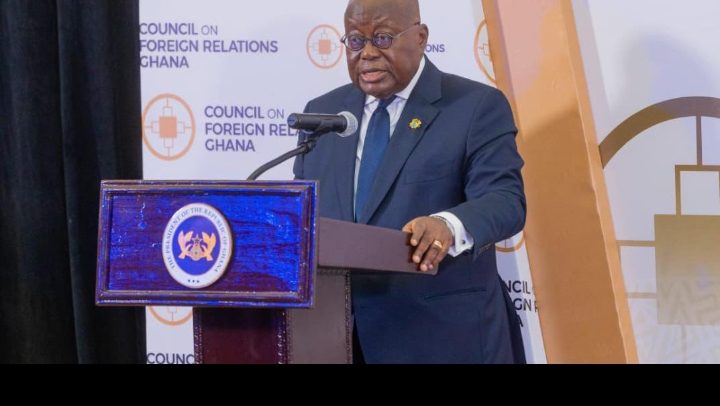President Nana Addo Dankwa Akufo-Addo, has at the 5th anniversary of the Council on Foreign Relations Ghana urged African leaders and international development partners to critically reassess the current development cooperation framework.
Speaking on the theme “The Limits of the Current Development Co-operation Framework for Africa’s Transformation,” the President highlighted the successes and challenges of Africa’s development journey since the end of colonialism.
President Akufo-Addo acknowledged the progress Africa has made in sectors like agriculture, education, health, and infrastructure, crediting international partnerships and various development frameworks for these achievements. However, he pointed out that despite these gains, significant challenges such as poverty, inequality, and underdeveloped infrastructure continue to plague the continent.
He criticized the dependency on external aid as a major limitation of the current development cooperation framework, arguing that it undermines domestic ownership and self-reliance. “Overreliance on aid weakens the capacity of African governments to generate and mobilize domestic resources, ultimately hindering sustainable development,” he stated.
To address these challenges, President Akufo-Addo called for a shift towards economic self-sufficiency, emphasizing the need to stimulate domestic resource mobilization, nurture entrepreneurship, and create an enabling environment for indigenous private sector investment. He also stressed the importance of reducing aid dependency, particularly in light of the emerging geopolitical climate in the West, where populist governments are cutting aid budgets.
Another critical issue raised by the President was the fragmentation of aid efforts, which often leads to inefficiencies and duplication. He advocated for greater harmonization and alignment of aid efforts with national development priorities, promoting mutual accountability and a more coordinated approach to maximize the impact of aid.
President Akufo-Addo also highlighted the need for structural transformation of Africa’s economies, moving beyond short-term projects to long-term sustainable development. He emphasized the importance of policies that promote economic diversification, increase productivity, and create decent jobs.
The President cited his government’s One-District-One-Factory (1D1F) initiative as a key effort towards achieving this structural transformation.
In conclusion, President Akufo-Addo called for a new development cooperation paradigm based on genuine partnerships, mutual accountability, sustainability, and local ownership.
He emphasized that African countries must take the lead in defining their development priorities, with development partners supporting these efforts in a collaborative and respectful manner.


